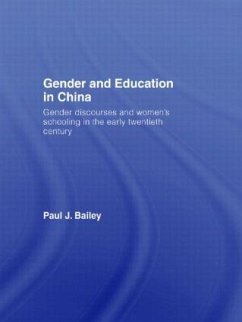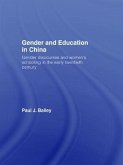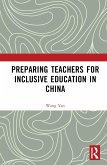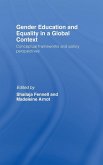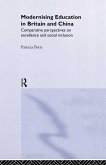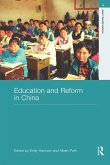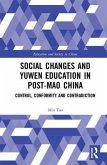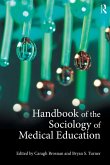Gender and Education in China analyzes the significance, impact and nature of women's public education in China from its beginnings at the turn of the twentieth century. Educational change was an integral aspect of the early twentieth century state-building and modernizing reforms implemented by the Qing dynasty as a means of strengthening the foundations of dynastic rule and reinvigorating China's economy and society to ward off the threat of foreign imperialism. A significant feature of educational change during this period was the emergence of official and non-official schools for girls. Using primary evidence such as official documents, newspapers and journals, Paul Bailey analyzes the different rationales for women's education provided by officials, educators and reformers, and charts the course and practice of women's education describing how young women responded to the educational opportunities made available to them. Demonstrating how the representation of women and assumptions concerning their role in the household, society and polity underpinned subsequent gender discourses throughout the rest of the century, Gender and Education in China will appeal to students and scholars of Chinese history, gender studies, women's studies as well as an interest in the history of education.
Hinweis: Dieser Artikel kann nur an eine deutsche Lieferadresse ausgeliefert werden.
Hinweis: Dieser Artikel kann nur an eine deutsche Lieferadresse ausgeliefert werden.

